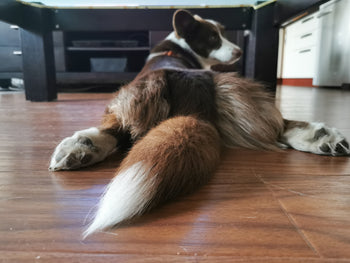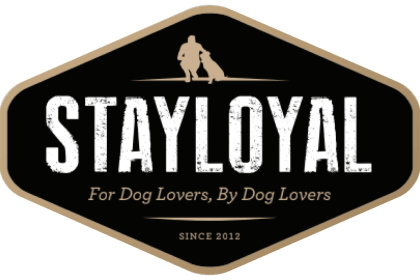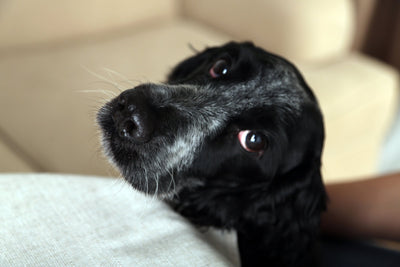Why Is My Dog Constantly Licking Its Butt? Understanding and Addressing the Behaviour!
|

As a dedicated dog owner, you're attuned to your furry friend's behaviours and habits. However, one behaviour that might leave you puzzled is when your dog incessantly licks its own rear end. While this behaviour might seem odd or even humorous, it could indicate underlying issues that require your attention. In this article, we'll delve into the reasons behind this behaviour, when it's a cause for concern, and how you can help your canine companion find relief.
Normal Licking vs. Excessive Licking:
Licking is a natural behaviour for dogs. It's how they clean themselves, show affection, and communicate. Dogs commonly lick their bodies, including their rear end, as part of their grooming routine. However, when licking becomes excessive and seems to be focused on the anal area, it might be a sign of an underlying problem.
Possible Reasons for Excessive Anal Licking:
Anal Gland Issues: Dogs have anal glands that produce a scent used for marking and communication. Sometimes, these glands can become blocked, infected, or inflamed, leading to discomfort. Dogs may excessively lick their rear end to relieve this discomfort.
Allergies: Allergic reactions, whether due to food, environmental factors, or parasites like fleas, can cause itchiness and irritation. Dogs may respond by incessantly licking the itchy area, which can include the anal region.
Infections: Bacterial or yeast infections in the anal area can cause discomfort and itchiness, prompting dogs to lick excessively.
Worm Infestations: Intestinal worms or tapeworms can cause itching and irritation around the anus, leading to frequent licking.
Skin Irritation: Irritated or inflamed skin in the anal area could result from various factors, such as contact with irritants or an improper diet.
Pain or Discomfort: Dogs might lick their anal area if they're experiencing pain, discomfort, or even arthritis in the hips or lower back.
When To Be Concerned:
While occasional licking is normal, there are certain signs that indicate the need for a closer look:
Intense, Unrelenting Licking: If your dog's licking seems obsessive, frequent, and accompanied by signs of distress or discomfort, it's time to investigate further.
Redness or Swelling: If the anal area appears red, swollen, or irritated, this could be a sign of an underlying issue requiring attention.
Foul Odor or Discharge: An unpleasant odour or discharge around the anal region could indicate anal gland problems or infections.
Changes in Behaviour: If your dog's behaviour has changed, such as increased restlessness, agitation, or changes in appetite, it could be related to the excessive licking.
Visible Worms: If you notice small, white segments around your dog's rear end or in their stool, this could indicate a tapeworm infestation.
Steps to Address the Behaviour:
Consult Your Veterinarian: If you notice any of the concerning signs mentioned above, it's crucial to consult your veterinarian. They can perform a thorough examination and determine the underlying cause of the excessive licking.
Treatment Plan: Depending on the diagnosis, your veterinarian will recommend an appropriate treatment plan. This could include medications for infections, anal gland expression, dietary changes, allergy management, or deworming medications.
Preventive Measures: To prevent future episodes of excessive licking, consider the following:
Regular Grooming: Maintain good hygiene for your dog, keeping the anal area clean and free from debris. Be aware that expressing anal glands when it isn’t needed can be the cause of anal gland issues. Unless your dog does have anal gland issues, do not let your groomer express them.
Flea Control: Use effective flea control measures to prevent flea infestations that can lead to itching and irritation.
Dietary Considerations: Opt for a high-quality, balanced diet that supports your dog's skin health and overall well-being. Like Stay Loyal Salmon Turkey and Pork.
Environmental Allergens: Minimize exposure to potential allergens in your dog's environment, especially if allergies are suspected.
Monitoring and Patience: After starting the recommended treatment, closely monitor your dog's behaviour and progress. It may take time for improvements to become noticeable.
Your dog's well-being is your top priority, and understanding their behaviours is a key part of responsible pet ownership. While licking is a normal behaviour, excessive and focused licking around the anal area can indicate underlying problems. By recognizing the signs, consulting your veterinarian, and following their guidance, you can address the issue and help your beloved furry companion find relief from discomfort. Remember, your veterinarian is your partner in ensuring your dog's health and happiness, so don't hesitate to seek their expertise whenever you have concerns.
Normal Licking vs. Excessive Licking:
Licking is a natural behaviour for dogs. It's how they clean themselves, show affection, and communicate. Dogs commonly lick their bodies, including their rear end, as part of their grooming routine. However, when licking becomes excessive and seems to be focused on the anal area, it might be a sign of an underlying problem.
Possible Reasons for Excessive Anal Licking:
Anal Gland Issues: Dogs have anal glands that produce a scent used for marking and communication. Sometimes, these glands can become blocked, infected, or inflamed, leading to discomfort. Dogs may excessively lick their rear end to relieve this discomfort.
Allergies: Allergic reactions, whether due to food, environmental factors, or parasites like fleas, can cause itchiness and irritation. Dogs may respond by incessantly licking the itchy area, which can include the anal region.
Infections: Bacterial or yeast infections in the anal area can cause discomfort and itchiness, prompting dogs to lick excessively.
Worm Infestations: Intestinal worms or tapeworms can cause itching and irritation around the anus, leading to frequent licking.
Skin Irritation: Irritated or inflamed skin in the anal area could result from various factors, such as contact with irritants or an improper diet.
Pain or Discomfort: Dogs might lick their anal area if they're experiencing pain, discomfort, or even arthritis in the hips or lower back.
When To Be Concerned:
While occasional licking is normal, there are certain signs that indicate the need for a closer look:
Intense, Unrelenting Licking: If your dog's licking seems obsessive, frequent, and accompanied by signs of distress or discomfort, it's time to investigate further.
Redness or Swelling: If the anal area appears red, swollen, or irritated, this could be a sign of an underlying issue requiring attention.
Foul Odor or Discharge: An unpleasant odour or discharge around the anal region could indicate anal gland problems or infections.
Changes in Behaviour: If your dog's behaviour has changed, such as increased restlessness, agitation, or changes in appetite, it could be related to the excessive licking.
Visible Worms: If you notice small, white segments around your dog's rear end or in their stool, this could indicate a tapeworm infestation.
Steps to Address the Behaviour:
Consult Your Veterinarian: If you notice any of the concerning signs mentioned above, it's crucial to consult your veterinarian. They can perform a thorough examination and determine the underlying cause of the excessive licking.
Treatment Plan: Depending on the diagnosis, your veterinarian will recommend an appropriate treatment plan. This could include medications for infections, anal gland expression, dietary changes, allergy management, or deworming medications.
Preventive Measures: To prevent future episodes of excessive licking, consider the following:
Regular Grooming: Maintain good hygiene for your dog, keeping the anal area clean and free from debris. Be aware that expressing anal glands when it isn’t needed can be the cause of anal gland issues. Unless your dog does have anal gland issues, do not let your groomer express them.
Flea Control: Use effective flea control measures to prevent flea infestations that can lead to itching and irritation.
Dietary Considerations: Opt for a high-quality, balanced diet that supports your dog's skin health and overall well-being. Like Stay Loyal Salmon Turkey and Pork.
Environmental Allergens: Minimize exposure to potential allergens in your dog's environment, especially if allergies are suspected.
Monitoring and Patience: After starting the recommended treatment, closely monitor your dog's behaviour and progress. It may take time for improvements to become noticeable.
Your dog's well-being is your top priority, and understanding their behaviours is a key part of responsible pet ownership. While licking is a normal behaviour, excessive and focused licking around the anal area can indicate underlying problems. By recognizing the signs, consulting your veterinarian, and following their guidance, you can address the issue and help your beloved furry companion find relief from discomfort. Remember, your veterinarian is your partner in ensuring your dog's health and happiness, so don't hesitate to seek their expertise whenever you have concerns.








